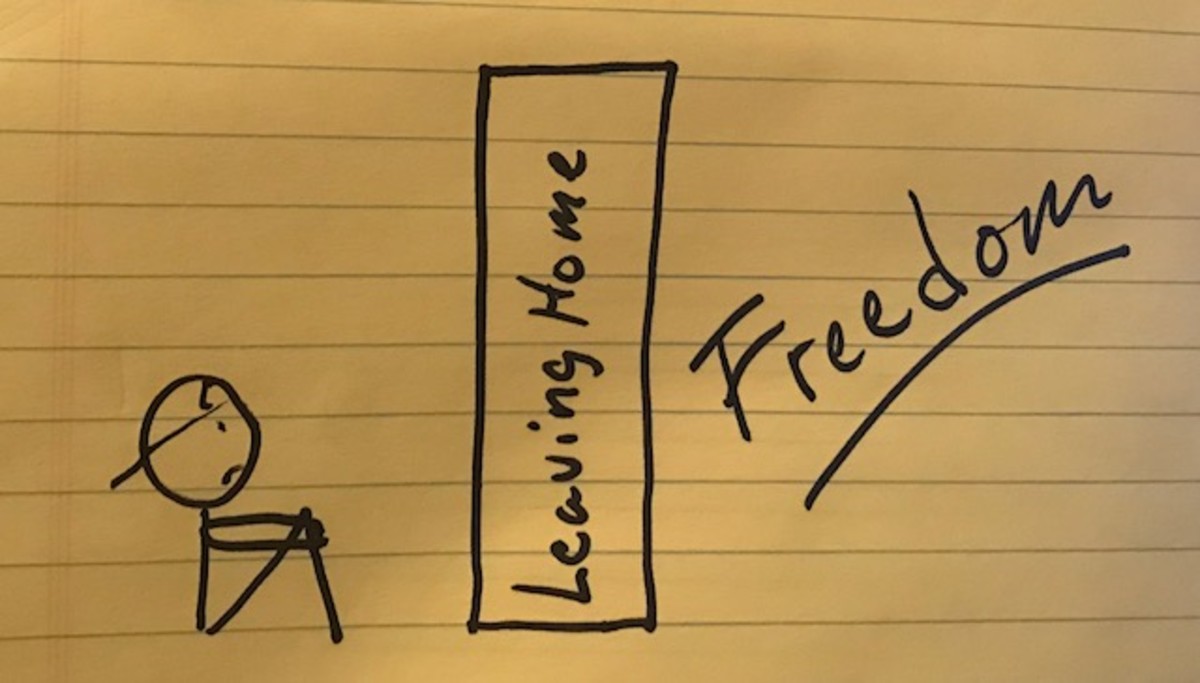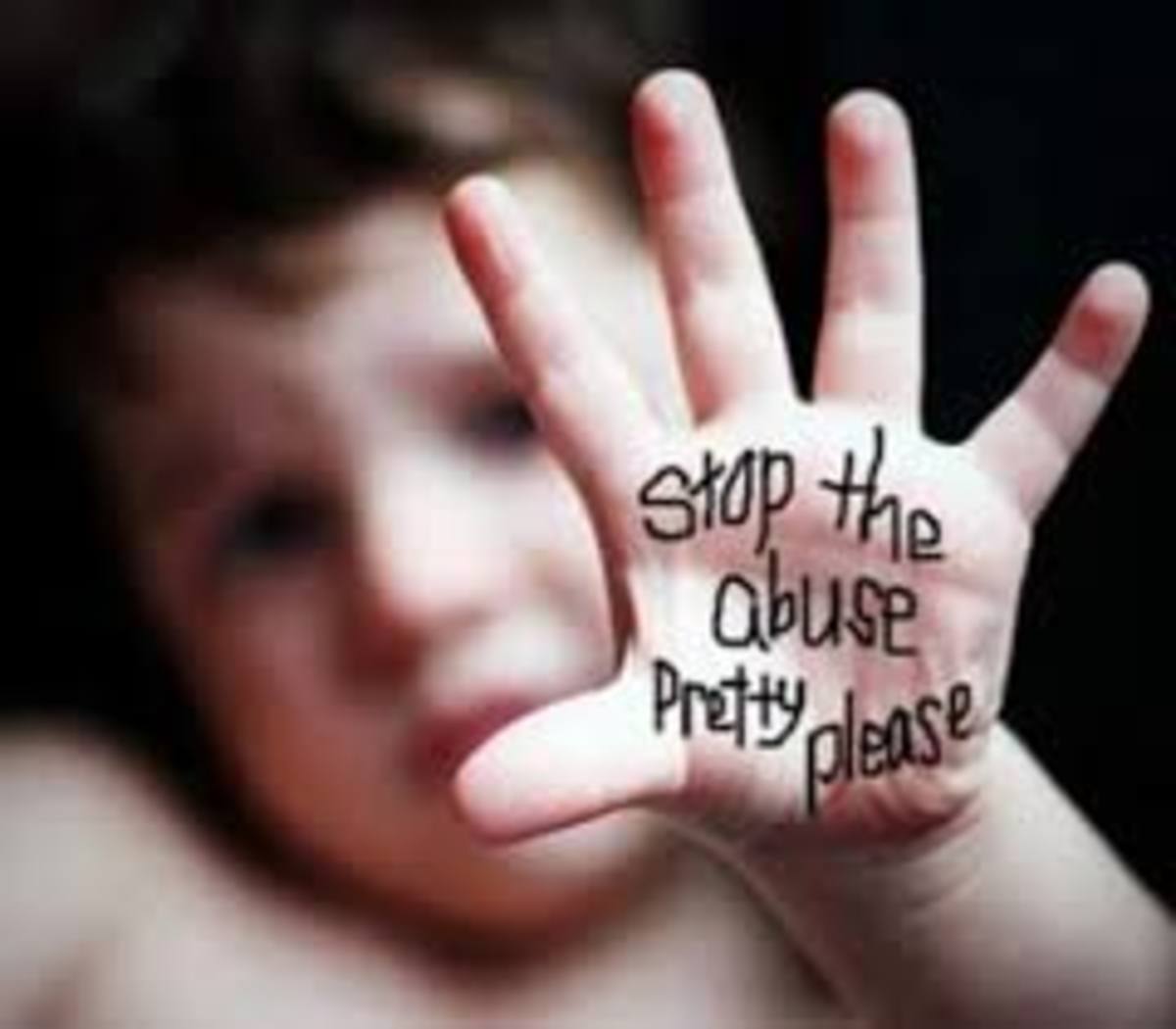What Were Your Parents' Perception Of You As A Child And How This Perception Affected You As An Adult, Part I

A Child Usually Fulfills His/Her Parents' Image Of Him/Her
When you were growing up what messages were relayed to you by your parents? Were these messages enabling, ennobling, and in general positive? Or were they denigrating, negative, and generally soul destroying? People often become either consciously or subconsciously what their parents convey to and perceive about them. This belief and perception is called a self-fulfilling prophecy.
There are some good to excellent parents who believe in instilling their children with the utmost of self-confidence and positivity. These parents contend that children need to be raised with the ultimate in respect, dignity, and confidence. These are the parents who believe in treating their children as they would treat their company.
When their children make mistakes and/or fail, these parents view this is as a growth and learning experience. They ask their children what can be gained from this experience. They tell their children that they are not diminished and/or lesser persons because they made mistakes and/or fail. They also separate the child from the behavior. They know that mistakes and failures are an integral part of life which cannot/should not be avoided.
These parents would never resort to verbally abusing or name calling their children because they either failed and/or making a mistake. They know that childhood and adolescence should be a time of exploration and ultimately discovering the adult that child will eventually be. They do not expect their children to be perfect automatons for that is totally impossible.
These parents inculcate their children that they can achieve anything that they put their minds to. They appreciate their children as they are. They see that their children are unique individuals in their own right. If they have more than one child, they do not practice the art of favoritism nor comparison. They find these practices to be totally insidious at best. They observe and cultivate the individual gifts and talents of their children. They also realize that each child in the family have his/her own unique kind of intelligence.
These parents are cognizant of the fact that children have their own developmental level. One child may walk at eight months while another walks at one years of old. These parents do not portend that the latter child is developmentally slow because he/she walks at one while the former learned to walk at eight months. They do not develop anxiety because a child does not do a certain task by a "prescribed" time. These parents know that each child does a task at his/her own pace. In essence, these parents thoroughly appreciate and enjoy their children for the wonderful and individualized human beings that they are.
These are the parents who are well aware of the fact how words impact a child whether positively or negatively. They would never deem to use any type of destructive disciplinary methods on their children. If they correct their children, they are proponents of constructive disciplinary methods. They know how to separate the act from the child. They understand that their children do fail sometimes but it is their children nevertheless and they still deserve their utmost in unconditional love and respect. They would never call their child degrading and pejorative names because they err.
Furthermore, once the child makes the mistake and grows from it, the mistake is over. This parent will never redundantly rehash the mistake to their child. To reiterate, this parent believes in giving their children every opportunity to explore, fail at times, and to grow. That is what parents do, contend this parent. In other words, failure and mistakes are not the be and end all, it is only a part of life and does not distract from the innate greatness of a child.
These parents are often in their children's corner. They believe in the talents and potentialities of their children no matter what negaters whether it is relatives, teachers, and/or other authorities say. Let's say that if a teacher has a less than positive opinion and/or assessment about their child, these parents will look at all aspects of this situation. They know the innate talent of their child and will not initially believe the teacher. For example, Condoleeza Rice, ex-Secretary of State and now a professor, stated during an interview that she was diagnosed as below proficient on an IQ test. Ms. Rice further related that her parents knew better, knowing that she was highly intelligent thus refusing to believe the assessment of the IQ test. In other words, these parents know that assessments and tests oftentime do not reveal the actual ability of their children.
These parents teach their children the importance of self-esteem and self-confidence. They realize that without these things, their children will not develop a sense of self which is prerequisite to survival, interfacing, and achievement in the academic, life, and job/career arenas. They are knowledgeable of the fact that self-esteem and self-confidence is the difference between facing negativity and thriving and/or crumbing in the face of the slightest opposition.
Children of such parents develop the self-confidence to explore and to take risks in life. In fact, they have such a positive self-image based upon parental perception of them, they are not afraid to fail as they view that as only a stepping stone. They know that they are not defined by the so-called errors and mistakes that they make. They have an integral knowledge of who they are and refuse to let anyone tell them otherwise.
They are quite undaunted by life's foibles because of the positive reinforcement they receive from their parents. They can be described as fearless. They are unafraid to try new avenues whether it is academics, sports, hobbies, and/or careers. They believe that if they do not succeed in one area, they will try other areas and will not become defeatist and stop trying. In fact, they portend that life is an exciting classroom where there are many opportunities to create and be whoever they want to be.
Even though some of these children may be of average intellect, they were told that they are smart and that they can do whatever they set their minds to. As a result of this parental inculcation, these children become highly successful adults in life and career/job. They know what they want to be in life and their parents encouraged them in that regard. No career and/or job was deemed by their parents to be too unrealistic and/or impractical. Their parents portend that as long as they are willing to strategize and work smart for their goals, they can achieve. They also were not raised with the words "can't" and/or "impossible" in their household. They were taught by their parents whatever they can conceive, they can achieve!
These children know that life is what one makes of it no more and no less. They approach life from a source of being a proactive participator. They are not victims who lament about the travails of life. If a situation and/or circumstance is negative, they believe that they have the power to correct this malady. They further contend that the world is their oyster. Their main goal is to add their imprint to the world and to make a more positive world for people to live in. They are their own individuals who follow their own unique lifepath. They refuse to envy and/or criticize others for following their lifepaths for each person is an individual in his/her uniqueness. They are too busy being and creating to ever be a critic. In fact, they maintain that being a critic is a sign of weakness and being evasive about life. Furthermore, according to such children, being a critic belies a certain negativity and fearfulness about life. The critic wants to do but has inner fears which prevent him/her from doing and accomplishing what he/she intends to do. They learned from their parents that it is much better and more positive to be a doer. In essence, a doer is more positive and confident than a critic!
To these parents, self-awareness and self-confidence is the most important gift to give a child. They maintain that when a child has these virtues, they are able to be creative, accomplished, and proactive. They also have the tools to develop themselves and to be a contributing member to society. Furthermore, when a child has an inner self-awareness and self-confidence, they cannot be easily destroyed by circumstances and negaters whatever/whomever they may be.
© 2012 Grace Marguerite Williams








